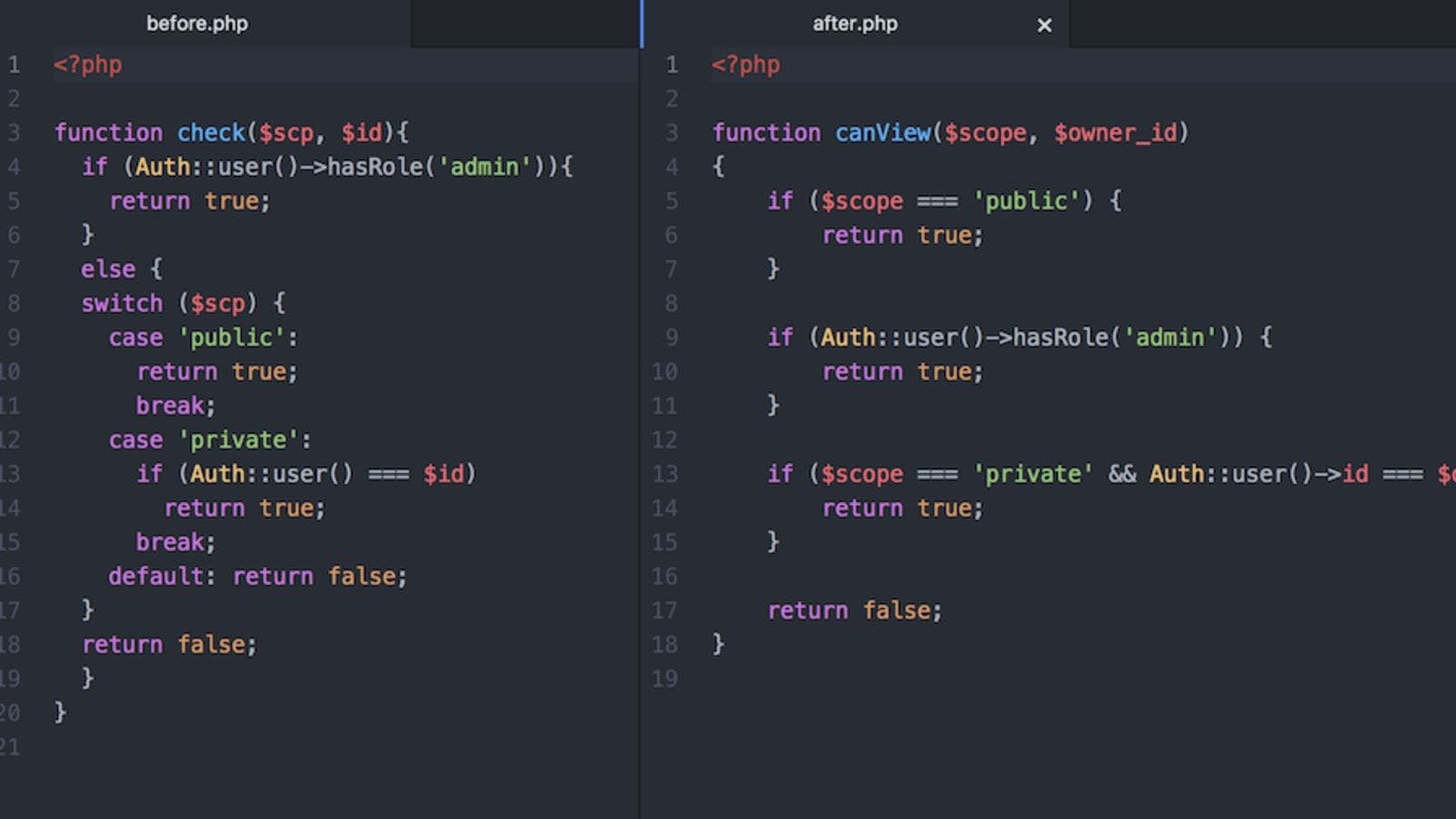
2024-8-26 23:12:47 Author: hackernoon.com(查看原文) 阅读量:5 收藏
Ever found yourself squinting at your own code at 2 a.m., trying to remember what exactly you were thinking when you wrote it? You’re not alone. Writing clean, maintainable code is one of those things that sounds great in theory but can feel impossible under tight deadlines and mounting pressure. But here’s the thing, clean code is your secret weapon. It’s the key to fewer late-night debugging sessions, fewer headaches for your future self, and more time to actually enjoy life outside of coding. So, let’s dive into why clean code matters, how to achieve it, and why your future self will thank you.

The Importance of Clean Code:
Why It Matters: Imagine you’re handed a project written by someone else, and it’s an indecipherable mess of variables named var1 and x23. You waste hours trying to figure out what’s going on, and by the time you do, you’re too frustrated to care. Now, flip the script. What if you’re the one writing that code? Clean code isn’t just about making life easier for others; it’s about making life easier for you. Think of it as a gift to your future self, a codebase that’s a pleasure to work with, not a burden.

Principles of Clean Code:
1. Keep It Simple, Smarty Pants: There’s a certain allure to writing clever, complex code that only you (and maybe your cat) can understand. Resist it. Simplicity is your friend. The simpler your code, the easier it is to maintain and the fewer the bugs. Remember, your code should do one thing well, not everything poorly.
2. Write Code Your Mom Could Understand: Okay, maybe not your mom, but at least a fellow developer who’s never seen your code before. Self-explanatory code means fewer comments, less confusion, and fewer excuses for why you can’t fix that bug. Descriptive variable names, clear functions, and intuitive classes are your best friends here.
3. DRY—Because Repeating Yourself Is So Last Year: Repetition might be great for memorizing lines in a play, but in coding, it’s a recipe for disaster. The DRY principle—Don’t Repeat Yourself—is all about reducing redundancy. Why write the same code twice when you can abstract it into a reusable function? Think of it as Marie Kondo-ing your code: if it doesn’t spark joy (or efficiency), it’s time to refactor.
4. Refactor Like You Mean It: Refactoring is like cleaning your house: it’s never done, but it’s always worth it. Regularly refactoring your code keeps it in tip-top shape, improves readability, and can even uncover hidden bugs. Plus, there’s nothing quite like the satisfaction of turning a chaotic codebase into something neat and orderly.
5. Test Like Your Code’s Life Depends on It: Because it does. Tests are your safety net, catching errors before they become full-blown disasters. Whether it’s unit tests, integration tests, or end-to-end tests, make sure you’ve got your bases covered. Writing clean code without tests is like skydiving without a parachute. Eventually, it’s going to hurt.
Practical Tips for Writing Clean Code:
1. Break It Down, Now: Big, sprawling functions are like that one junk drawer in your house—full of stuff, but impossible to find anything in. Break your functions down into smaller, single-purpose units. Your future self (and your team) will thank you when they’re not wading through a 500-line behemoth.
2. Consistency Is Key: There’s nothing worse than a codebase that looks like a patchwork quilt of different naming conventions. Whether you’re a fan of camelCase, snake_case, or kebab-case, just pick one and stick with it. Consistency makes your code easier to read and maintain and it stops your colleagues from grumbling about your variable names behind your back.
3. Clever Code ≠ Good Code: Sure, that one-liner might look impressive, but is it readable? If the answer is no, then it’s not worth it. Prioritize clarity over cleverness. Your code should be easy to understand at a glance, not something that requires a degree in cryptography to decipher.
4. Embrace the Power of Peer Reviews: Code reviews are like having a second pair of eyes on your work and sometimes, those eyes catch things you never would have noticed. They’re not just about catching bugs, though; they’re also an opportunity to learn from your peers and improve your own coding practices.
5. Let the Robots Help: Linters and code formatters are your silent, tireless helpers. They catch issues before they become problems, enforce coding standards, and generally make your life easier. Set them up in your IDE, and let them do the heavy lifting when it comes to keeping your code clean.

Clean code isn’t just a nice-to-have, it’s a must-have if you want to be a developer who’s not constantly putting out fires. By keeping things simple, writing self-explanatory code, and embracing practices like DRY, refactoring, and testing, you’ll set yourself up for success. Plus, your future self will definitely appreciate not having to decipher a tangled mess of code. So go ahead, write that clean code, and enjoy a little more peace of mindand maybe even a full night’s sleep.
如有侵权请联系:admin#unsafe.sh